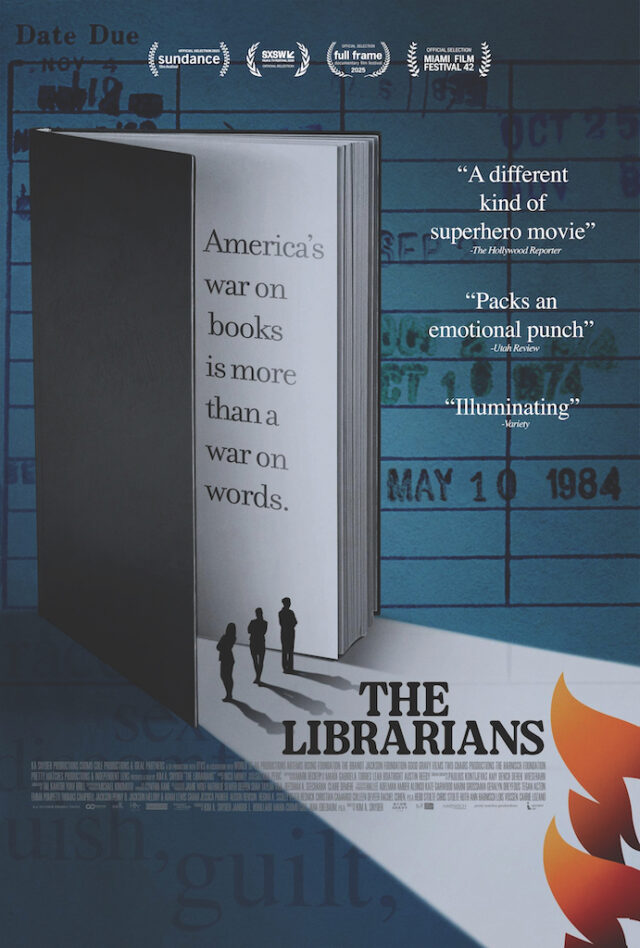
By Dimitri Ehrlich
Culture wars can create strange frontlines, but few have been more jarring than the way school libraries across the United States have become the site of pitched battles over book banning in recent years.
A riveting new documentary, The Librarians, screening at this year’s Hamptons International Film Festival, explores how an army of mostly female caretakers of the Dewey decimal system have bravely stood up against the ugliest assault on the First Amendment since McCarthyism.
Directed by Academy Award nominee Kim A. Snyder, and produced by Maria Cuomo Cole, among others, the film features school librarians in places as far-flung as Texas and Louisiana, but also in purple and blue states including Virginia and New Jersey, who are forced into a role they never imagined: defenders of the Constitution.
The fight begins in 2021 when a member of the Texas House of Representatives named Matt Krause produces a list of 850 books he deemed offensive and inappropriate for schoolchildren. Krause manages to get Texas Gov. Greg Abbott to threaten librarians with criminal charges if they fail to remove the books from their shelves. Many of the books on Krause’s list have LGBTQ themes. Others simply tell the accurate history of Black people in America. Soon, the crusade is joined by the conservative group Moms for Liberty, and the list of books they describe as “pornography” becomes so utterly unhinged from reality that challenged titles—including a graphic novel adaptation of The Diary of Anne Frank and the Pulitzer Prize-winning graphic novel about the Holocaust, Maus—are both caught up in their crusade. So too are classics including Beloved by Toni Morrison and even Alice Walker’s The Color Purple.
The response to these challenges by the librarians we meet in this quietly unsettling documentary is a mix of disbelief, refusal to bend the knee to encroaching authoritarianism, and quiet heroism. Some are military veterans, some are Baptist ministers; some find devious ways to resist through acts of insubordination; some end up losing their jobs for refusing to toe the line. One thing that bonds all the librarians featured in this documentary: They know the history of the United States. They know the Constitution. They know the stakes.
As Martha Hickson, a librarian in Hunterdon County, New Jersey, says, “When they go after the books, what they’re really going after is those kids who come into my library for a safe space, and I can’t abide by that.”
The librarians understand that having to lock away certain books is like forcing young reader students into a closet, essentially not only banning books, but silencing human beings. They know that the freedom to explore ideas—and by extension, different identities—is an inalienable right that’s at the heart of our democratic experiment, and this is what is under assault.
“Assault” is not merely a figure of speech. When Krause and Moms for Liberty encounter resistance from librarians, they and their army of online supporters quickly escalate the attacks, with some parents accusing the librarians of being pedophiles and groomers. Death threats against school librarians become so widespread that one begins carrying multiple guns.
As The Librarians makes clear, the book banning movement isn’t just about what kids read: The mission is to use small-town school boards to push an extreme conservative agenda by controlling and manipulating the dissemination of information. Whether the goal is simply to gain power and money, or to transform America into a Christian theocracy, remains an open question. Ultimately, as the film suggests, they may be one and the same.





